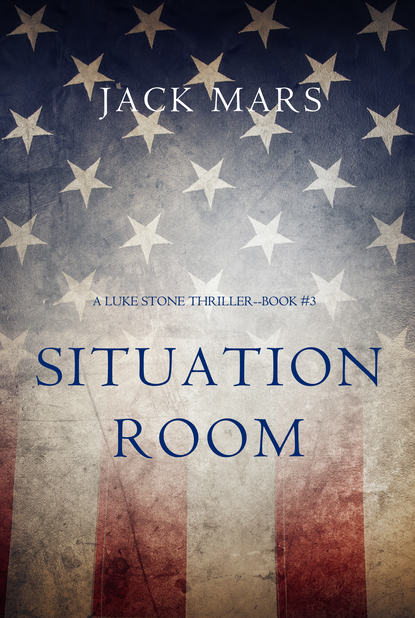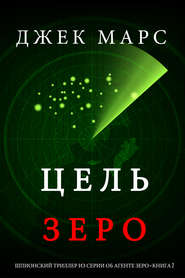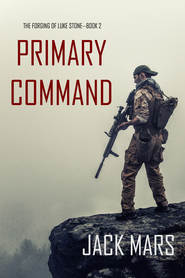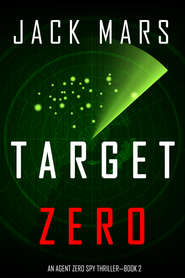По всем вопросам обращайтесь на: info@litportal.ru
(©) 2003-2025.
✖
Situation Room
Настройки чтения
Размер шрифта
Высота строк
Поля
“Susan,” Luke said. “I’d like to remind you that you’re asking me to come out of retirement again. You know what I’ve been doing for the past two months? I’ll tell you. Camping, fishing, hiking, sailing. A little bit of hunting. A little bit of diving.” He rubbed his beard. “Sleeping late.”
“So you’re fit for duty,” Kurt Kimball said.
Luke shook his head. “I’m caked in rust. I need my team. I trust them. I can’t really function without them.”
“Luke, if you’d stuck around instead of disappearing, we might have been able to carve out a little agency for you…”
“I was trying to save my marriage,” he said.
Susan stared right at him. “How did it go?”
He gave her a tiny head shake. “Not too well, so far.”
“I’m sorry to hear that.”
“So am I.”
Susan glanced behind her. “Kat, can we have the status on Luke’s former team members?”
Kat Lopez glanced down at the tablet in her hand. “Sure. That’s easy enough. Mark Swann left the FBI for a job with the National Security Agency. He works at their headquarters here in suburban DC. He’s been there three and a half weeks. He’s moving through their classification system, and should begin work on the PRISM data mining project within another month.
“Edward Newsam is still with the FBI. He was out on medical leave for most of June and July. His hip rehabilitation is complete, and he’s been reassigned to the Hostage Rescue Team. He is currently in training at Quantico for possible overseas intelligence work to begin later in the year. There’s a note in his file that his employment status is likely to become classified in the coming weeks, at which point a Top Secret security clearance will be required to discuss his status or his whereabouts.”
Luke nodded. Neither of these were much of a surprise. Swann and Newsam were among the best at what they did. “Can we get them on loan?” he said.
Kat Lopez nodded. “In all likelihood, if we request them, the agencies will honor our request.”
“And Trudy?” Luke said. “I need her, too.”
“Luke, Trudy Wellington is in jail,” Susan said.
Luke felt his stomach drop at the words. He stared for a full five seconds, trying to process the words.
“What?” he finally said.
Susan shook her head.
“I can’t believe you don’t know. What have you been doing, hiding under a rock? Don’t you look at the newspapers?”
He shrugged. “I told you what I was doing. I’ve been off the grid. They don’t sell newspapers where I’ve been, and I’ve been leaving the computer at home.”
Kat Lopez read from her tablet. Her voice was automatic, almost robotic. She had detached herself from what she was saying.
“Trudy Wellington, age thirty, was Don Morris’s mistress for at least a year during the planning of the June sixth attacks. Email, telephone, text, and computer records suggest that as early as last March, she became aware of a plan to assassinate both the President and Vice President of the United States, and she was aware of who at least some of the conspirators were. She has been indicted on charges of treason, conspiracy to commit treason, more than three hundred counts of conspiracy to commit murder, and a host of other charges. She’s being held without bail at the Federal women’s prison facility in Randal, Maryland. If convicted of the charges against her, she faces penalties starting with multiple life sentences, up to and including the death penalty.”
Luke ran a hand through his hair. The news hit him like a punch in the head. He thought of Trudy, pictured her with her funny red glasses on, her eyes peeking over the top of her tablet computer. He thought of her on the night he went to her apartment at 3 a.m., opening the door with nothing on but a long, flimsy T-shirt, a gun in her hand. He thought of the two of them, and their bodies, together that night.
She was in prison? It couldn’t be real.
“Trudy Wellington is facing the death penalty?” he said.
“In a word, yes.”
“Basically, because she didn’t turn Don in?”
Susan shook her head. “It’s treason, no matter how you want to spin it. A lot of people died, including Thomas Hayes, who was both the President of the United States and a personal friend of mine. Wellington could possibly have prevented it, and chose not to. She chose to not even try. About the only way she can save herself at this point is to testify against the conspirators.”
“I have trouble believing that she knew,” Luke said. “Has she confessed?”
“She denies everything,” Kat Lopez said.
“I would tend to believe her,” Luke said.
Kat held out her tablet. “There’s about two hundred pages of evidence. We have access to most of it, which you can review. You might feel differently after you do.”
Luke shook his head. He looked at Susan. “So where does this leave us?”
She shrugged. “You can have Mark Swann and Ed Newsam for a couple days if you feel you need them. But you can’t have Trudy Wellington.”
She looked at him.
“And your chopper leaves in under an hour.”
CHAPTER FIVE
August 16th
7:15 a.m.
Black Rock Dam, Great Smoky Mountains, North Carolina
From Luke’s window, nothing seemed out of the ordinary as their sleek black helicopter flew low over the dam. They came in over Black Rock Lake, which was long, undulating, and picturesque, bordered on all sides by dense green wilderness and steep hillsides. A narrow roadway crossed the top of the dam. They flew past it, and the dam itself fell away, fifty stories down to the power house and the floodgates. The floodgates appeared to be operating normally, a small trickle of water flowing out from beneath them. About a quarter mile of electricity transformers, a spider web of steel towers and high tension wires, stretched away from the dam. They seemed to be intact.
“Not much to see,” he said into his headset.
To his left sat big Ed Newsam, staring out the window on the opposite side. Ed’s broken hip was mended, and it looked like he had been hitting the weight room. His python-like arms were more swollen than Luke remembered, his chest and shoulders were even broader, his legs even more like oak trees. He wore jeans, work boots, and a simple blue T-shirt.
In the row behind them sat Mark Swann. He was long and lean, his blue-jeaned legs jutting out in the aisle, his checkerboard Chuck Taylor sneakers crossed at the ankles in front of Luke. His sandy hair was longer than before, tied in a ponytail now, and he had swapped out his aviator-type glasses for the round John Lennon style at some point in the past two months. He wore a black T-shirt with the logo from the punk rock band The Ramones. The NSA offices must be quite the fashion show.
“The water went out the floodgates just like it’s supposed to do,” the chopper pilot said. He was a middle-aged man wearing a black nylon jacket with the capital letters FEMA in white on the back. “There was no damage to the dam or the dam facilities, and there were no casualties among dam personnel. The only thing that happened here was the access road got washed away. About three miles south is where the real action starts.”
They had flown on a Secret Service jet from DC to a small municipal airport at the edge of the National Park. They had arrived just before sunrise, and this chopper was waiting for them. They didn’t talk much on the flight down. The mood was somber, given the circumstances, and Trudy Wellington, as the intel officer, would normally have done most of the talking. Susan had offered Luke a different intel person, but Luke declined. They were coming down to brace a prisoner anyway. He could give them all the intel they needed.
Luke sensed they were all feeling the loss of Trudy, and a certain amount of shock at her situation. He also sensed, or thought he did, that both of these guys had moved on in their lives. New assignments, new training, new team members and co-workers, new challenges to look forward to. A lot could change in two months.
The Special Response Team was gone. Luke could have chosen to save it in some form – after the coup attempt and Ebola attacks he could write his own ticket and take them all with him – but instead he chose not to. Now the SRT was old news, and so was Luke Stone. He had retired, and that was one thing. But he had also disappeared, and he hadn’t made much effort to keep in touch. Team cohesion was a big part of intelligence and special operations work. With no contact, there was no cohesion.
Which meant that right now, there was no team.
“So you’re fit for duty,” Kurt Kimball said.
Luke shook his head. “I’m caked in rust. I need my team. I trust them. I can’t really function without them.”
“Luke, if you’d stuck around instead of disappearing, we might have been able to carve out a little agency for you…”
“I was trying to save my marriage,” he said.
Susan stared right at him. “How did it go?”
He gave her a tiny head shake. “Not too well, so far.”
“I’m sorry to hear that.”
“So am I.”
Susan glanced behind her. “Kat, can we have the status on Luke’s former team members?”
Kat Lopez glanced down at the tablet in her hand. “Sure. That’s easy enough. Mark Swann left the FBI for a job with the National Security Agency. He works at their headquarters here in suburban DC. He’s been there three and a half weeks. He’s moving through their classification system, and should begin work on the PRISM data mining project within another month.
“Edward Newsam is still with the FBI. He was out on medical leave for most of June and July. His hip rehabilitation is complete, and he’s been reassigned to the Hostage Rescue Team. He is currently in training at Quantico for possible overseas intelligence work to begin later in the year. There’s a note in his file that his employment status is likely to become classified in the coming weeks, at which point a Top Secret security clearance will be required to discuss his status or his whereabouts.”
Luke nodded. Neither of these were much of a surprise. Swann and Newsam were among the best at what they did. “Can we get them on loan?” he said.
Kat Lopez nodded. “In all likelihood, if we request them, the agencies will honor our request.”
“And Trudy?” Luke said. “I need her, too.”
“Luke, Trudy Wellington is in jail,” Susan said.
Luke felt his stomach drop at the words. He stared for a full five seconds, trying to process the words.
“What?” he finally said.
Susan shook her head.
“I can’t believe you don’t know. What have you been doing, hiding under a rock? Don’t you look at the newspapers?”
He shrugged. “I told you what I was doing. I’ve been off the grid. They don’t sell newspapers where I’ve been, and I’ve been leaving the computer at home.”
Kat Lopez read from her tablet. Her voice was automatic, almost robotic. She had detached herself from what she was saying.
“Trudy Wellington, age thirty, was Don Morris’s mistress for at least a year during the planning of the June sixth attacks. Email, telephone, text, and computer records suggest that as early as last March, she became aware of a plan to assassinate both the President and Vice President of the United States, and she was aware of who at least some of the conspirators were. She has been indicted on charges of treason, conspiracy to commit treason, more than three hundred counts of conspiracy to commit murder, and a host of other charges. She’s being held without bail at the Federal women’s prison facility in Randal, Maryland. If convicted of the charges against her, she faces penalties starting with multiple life sentences, up to and including the death penalty.”
Luke ran a hand through his hair. The news hit him like a punch in the head. He thought of Trudy, pictured her with her funny red glasses on, her eyes peeking over the top of her tablet computer. He thought of her on the night he went to her apartment at 3 a.m., opening the door with nothing on but a long, flimsy T-shirt, a gun in her hand. He thought of the two of them, and their bodies, together that night.
She was in prison? It couldn’t be real.
“Trudy Wellington is facing the death penalty?” he said.
“In a word, yes.”
“Basically, because she didn’t turn Don in?”
Susan shook her head. “It’s treason, no matter how you want to spin it. A lot of people died, including Thomas Hayes, who was both the President of the United States and a personal friend of mine. Wellington could possibly have prevented it, and chose not to. She chose to not even try. About the only way she can save herself at this point is to testify against the conspirators.”
“I have trouble believing that she knew,” Luke said. “Has she confessed?”
“She denies everything,” Kat Lopez said.
“I would tend to believe her,” Luke said.
Kat held out her tablet. “There’s about two hundred pages of evidence. We have access to most of it, which you can review. You might feel differently after you do.”
Luke shook his head. He looked at Susan. “So where does this leave us?”
She shrugged. “You can have Mark Swann and Ed Newsam for a couple days if you feel you need them. But you can’t have Trudy Wellington.”
She looked at him.
“And your chopper leaves in under an hour.”
CHAPTER FIVE
August 16th
7:15 a.m.
Black Rock Dam, Great Smoky Mountains, North Carolina
From Luke’s window, nothing seemed out of the ordinary as their sleek black helicopter flew low over the dam. They came in over Black Rock Lake, which was long, undulating, and picturesque, bordered on all sides by dense green wilderness and steep hillsides. A narrow roadway crossed the top of the dam. They flew past it, and the dam itself fell away, fifty stories down to the power house and the floodgates. The floodgates appeared to be operating normally, a small trickle of water flowing out from beneath them. About a quarter mile of electricity transformers, a spider web of steel towers and high tension wires, stretched away from the dam. They seemed to be intact.
“Not much to see,” he said into his headset.
To his left sat big Ed Newsam, staring out the window on the opposite side. Ed’s broken hip was mended, and it looked like he had been hitting the weight room. His python-like arms were more swollen than Luke remembered, his chest and shoulders were even broader, his legs even more like oak trees. He wore jeans, work boots, and a simple blue T-shirt.
In the row behind them sat Mark Swann. He was long and lean, his blue-jeaned legs jutting out in the aisle, his checkerboard Chuck Taylor sneakers crossed at the ankles in front of Luke. His sandy hair was longer than before, tied in a ponytail now, and he had swapped out his aviator-type glasses for the round John Lennon style at some point in the past two months. He wore a black T-shirt with the logo from the punk rock band The Ramones. The NSA offices must be quite the fashion show.
“The water went out the floodgates just like it’s supposed to do,” the chopper pilot said. He was a middle-aged man wearing a black nylon jacket with the capital letters FEMA in white on the back. “There was no damage to the dam or the dam facilities, and there were no casualties among dam personnel. The only thing that happened here was the access road got washed away. About three miles south is where the real action starts.”
They had flown on a Secret Service jet from DC to a small municipal airport at the edge of the National Park. They had arrived just before sunrise, and this chopper was waiting for them. They didn’t talk much on the flight down. The mood was somber, given the circumstances, and Trudy Wellington, as the intel officer, would normally have done most of the talking. Susan had offered Luke a different intel person, but Luke declined. They were coming down to brace a prisoner anyway. He could give them all the intel they needed.
Luke sensed they were all feeling the loss of Trudy, and a certain amount of shock at her situation. He also sensed, or thought he did, that both of these guys had moved on in their lives. New assignments, new training, new team members and co-workers, new challenges to look forward to. A lot could change in two months.
The Special Response Team was gone. Luke could have chosen to save it in some form – after the coup attempt and Ebola attacks he could write his own ticket and take them all with him – but instead he chose not to. Now the SRT was old news, and so was Luke Stone. He had retired, and that was one thing. But he had also disappeared, and he hadn’t made much effort to keep in touch. Team cohesion was a big part of intelligence and special operations work. With no contact, there was no cohesion.
Which meant that right now, there was no team.











